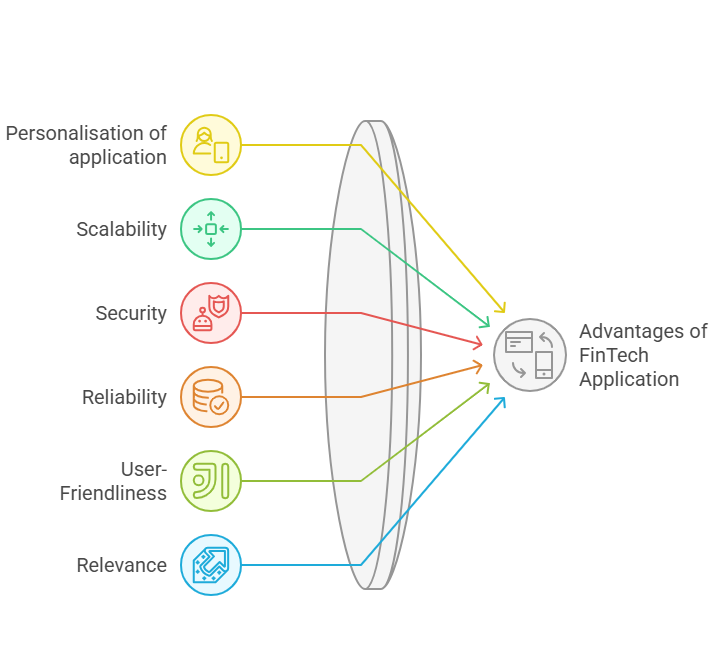Customised Financial Products
The fintech market is experiencing explosive growth, projected to reach a Compound Annual Growth Rate (CAGR) of 23.58% by 2025. This surge is transforming how banks and financial institutions operate, driven by the adoption of e-wallets, digital payments, "buy now, pay later" services, and peer-to-peer lending. Enterprise software development companies are playing a crucial role in simplifying financial transactions and expanding market reach.
The Power of Customisation
Providing customised financial products is essential for meeting diverse customer needs. This is achieved through custom software development, tailoring solutions for specific departments and individual requirements.
Advantages of Fintech Implementation
1. Personalisation of Applications:
- Data-Driven Insights: Fintech applications leverage user data to understand spending patterns and usability.
- Tailored Experiences: Companies can personalise applications with custom features, designs, and upgrades, enhancing user engagement.
- AI and Machine Learning: Advanced technologies like AI and machine learning enable the creation of highly customised products for insurance, loyalty programs, and digital banking.
- Example: A banking app that displays spending habits visually and offers relevant financial advice based on individual transactions.
2. Providing Scalable Solutions:
- Unlimited User Capacity: Unlike off-the-shelf software, custom fintech applications can scale to accommodate a growing user base without incurring additional costs per user.
- Efficient Growth: Fintech software development facilitates rapid business expansion.
- Example: A digital wallet app that can handle millions of simultaneous transactions without performance degradation.
3. Safe Security:
- Robust Data Protection: Fintech applications prioritize security, safeguarding sensitive information like credit card details.
- Advanced Threat Detection: AI and machine learning are used to identify and prevent potential security threats.
- Example: A financial app with multi-factor authentication and real-time fraud detection.
4. Reliable Applications:
- Cloud Deployment: Cloud-based fintech applications reduce infrastructure costs and improve accessibility.
- Automated Customer Support: Chatbots provide instant customer support and address common queries.
- Enhanced Privacy: Fintech solutions address privacy concerns through secure data handling and transparency.
- Robotic Process Automation (RPA): RPA automates tasks like invoicing and data entry, streamlining financial management.
- Example: An automated invoicing system that sends out timely reminders and processes payments automatically.
5. User-Friendly Interfaces:
- Simplified Access: Fintech applications make financial products easily accessible through intuitive interfaces.
- Digital Banking: Users can open accounts, make deposits, and apply for loans through smartphone apps.
- Automated Processes: Accounts departments can generate digital invoices, eliminating manual work.
- Example: A loan application process that can be completed entirely within a mobile app, reducing paperwork.
6. Relevance in a Competitive Market:
- Staying Ahead of the Curve: Fintech is essential for financial institutions, banks, and companies to remain competitive.
- Adapting to Trends: Companies must transform to meet evolving customer expectations in the rapidly growing fintech landscape.
- Data Analytics: Data analytics provides valuable insights into customer preferences, enabling personalised services.
- Robo-Advisors: Robo-advisors offer automated investment advice.
- Blockchain Technology: Blockchain enables secure and transparent smart contracts and transactions.
- Integrated Solutions: Custom software development integrates various fintech features into a cohesive platform.
- Branchless Banking and Cashless Transactions: Fintech facilitates the transition to branchless banking and cashless transactions, meeting the demands of the future.
- Example: A financial platform that uses AI to provide personalized investment recommendations and integrates blockchain for secure transactions.


No Comments